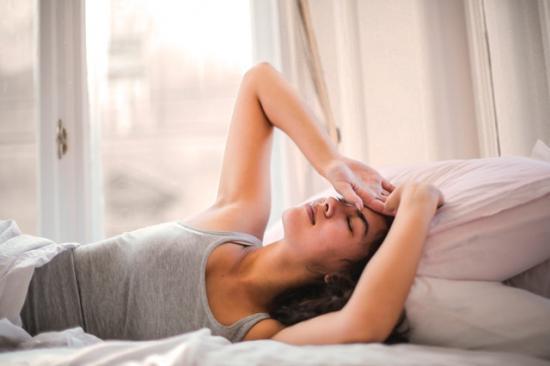Stress About COVID-19 Keeping You Awake? 6 Tips for Better Sleep
- Stress and anxiety can make getting a healthy amount of sleep each night more difficult.
- Regularly getting enough quality sleep is an important component of your physical and mental health.
- Sleep deprivation can reduce your immune system and increase inflammation in the body, making you more vulnerable to illness.
A good night’s sleep is paramount for the health of your brain and body.
However, as the COVID-19 pandemic continues to spread, sowing anxiety and worry along with it, getting a healthy amount of quality sleep probably isn’t as easy as it used to be.
And getting good sleep is more important now than ever.
“We know that sleep is directly related to immunity in terms of the physiological response in our body: If we’re not sleeping we can reduce our immune system, we can increase inflammation in the body, which we know can then lead to being more vulnerable to various viruses or whatever might be in our environment,” Brittany LeMonda, PhD, a senior neuropsychologist at Lenox Hill Hospital in New York City told Healthline.
In other words, your quality of sleep plays a direct role in your body’s ability to keep you safe from the novel coronavirus.
So, in addition to all the recommended hygiene behaviors to ward off the disease, like handwashing and social distancing, consider your own sleep health as another way to stay protected.
Here are a few helpful tips to help wind down and get a good night’s rest, even during these stressful and uncertain times.
Many people have had their daily lives totally upended as a direct result of this pandemic. Some have been laid off. Some are adjusting to working from home. Others are now juggling work and family as they look after children who are now out of school for the remainder of the school year.
No matter how your life has been affected, it’s of the utmost importance to keep a regular routine in order to get good sleep.
“This is actually a time when we need to remember and be mindful of how we are living our lives in this very different way. So, we need to keep our lives as close to our routine as possible,” Navya Singh, PysD, a psychologist and research scientist at the Columbia University department of psychiatry, told Healthline
“If you’re working from home, get up at the same time and get dressed. You might just be going to the next room or working from your bedroom, but just have that same sense of routine and normalcy, which will help you feel less disrupted,” she said.
If you’ve found yourself in a self-quarantine or work-from-home situation due to the pandemic, the bedroom or couch might end up calling — a little too frequently.
Adding to the importance of establishing a routine for yourself, make sure you’re not napping excessively, as this can even make you sleepier during the dayTrusted Source, potentially altering or disrupting a regular sleep routine.
Having a normal sleep routine should help to “anchor your entire day,” said LeMonda. Instead of napping, use that healthy routine to get up early and start getting things done.
Yes, your gym is probably closed, but exercise should still be part of your daily life. Daily exercise is still just as important, especially for sleep.
Social distancing and stay-at-home orders may have you feeling that your options are more limited, but there are a number of ways you can effectively exercise without leaving your home.
“Getting exercise during the day is really important,” said LeMonda, “We know that that’s tied to improved sleep for pathophysiological reasons: We will feel more tired if we’ve exerted ourselves. We will also feel more accomplished that day as well, so there will be a sense of achievement before bed.”
Just don’t exercise within a few hours of bedtime because the stimulation of physical exertion can make it harder to get to sleep.





















